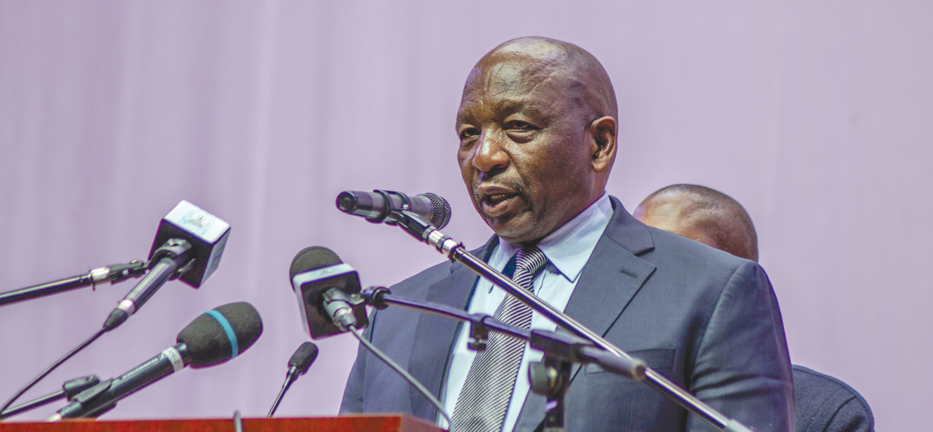The shocking state of Lesotho’s government asset management has come to light, exposing a level of neglect and mismanagement so severe that countless state properties, ranging from vehicles and houses to valuable sites, have ended up in private hands without proper documentation.
The revelations by the Government Assets Search and Recovery Task Team (GASRTT) point to a systemic collapse of oversight, where dereliction of duty by responsible offices has allowed national resources to be treated like personal property.
The task team, which reports to the Prime Minister’s Office, recently briefed the Public Accounts Committee (PAC) on its findings, painting a disturbing picture of how far the rot has set in.
Established in March 2023 following a Cabinet resolution, the team was mandated to track, recover, and secure state assets. Instead, what it discovered is a trail of vanished vehicles, vandalised houses, encroached land, and a government crippled by its own negligence.
The government holds assets across the country and abroad, including official residences, offices, vehicles, heavy machinery, warehouses, and land.
The task team discovered that some residential properties belonging to the office of the Prime Minister are left unattended and now in a state of disrepair.
The Land Administration Authority (LAA) submitted a list of 756 government sites. Upon investigation, the task team found the reality to be far worse: 1,601 sites were surveyed, with 1,214 confirmed as government-owned.
Of these, 97 had been mysteriously transferred to private individuals, transactions that remain under investigation. An additional 232 sites were validated, but 59 are already in dispute and six have been encroached upon. The picture emerging is one of widespread land capture facilitated by state neglect.
The chaos extends to the government vehicle fleet. Official databases list 1,579 vehicles and 100 pieces of heavy machinery. Yet Fleet Services Lesotho records only 987 vehicles. In contrast, Engen Petroleum’s fueling contract indicates that at one point nearly 3,900 vehicles were registered, with over 3,000 still active.
The discrepancies raise questions about where the missing vehicles have gone, who is using them, and why accountability mechanisms have collapsed.
In Maseru West, Florida, Europa, and Hillsview, vandalised government houses bear testimony to years of neglect. Broken windows, stripped fittings, and collapsing walls have turned once-valuable properties into ghostly shells. Instead of being refurbished for civil servants or sold transparently to raise revenue, they have been abandoned—easy prey for illegal occupants.
The task team has already issued eviction notices to individuals found unlawfully occupying government residences and sites, yet questions linger as to how such occupations were allowed in the first place.
Acting on tips in Hlotse, the task team uncovered names of individuals and companies occupying prime government sites, including Mochochonono Investment (Raheem Family Trust), Sigma Properties, Michael Keele, Boloetsi Senti, Nthabiseng Mofolo, Liam Paleho, Tefo Khoanyane, and Seqeno Khang. While some, such as Mochochonono Investments and Liam Paleho, have agreed to surrender properties, others have resisted.
A civil case has already been launched against Keele for encroachment on land belonging to the Ministry of Education. Ten other civil cases involving fraud and violations of the Land Act have been opened at the Leribe Police Station.
Despite limited resources, the task team has managed to recover a handful of assets, including two Nissan Hardbody NP300 vehicles, a tractor trailer, several laptops, and a number of houses and sites. But these represent only a fraction of what has been lost. The majority of state assets remain unaccounted for, tied up in disputes, or simply rotting away.
What makes the situation worse is the institutional paralysis surrounding the task team itself. Initially composed of personnel from the Prime Minister’s Office, the Lesotho Defence Force, the Lesotho Mounted Police Service, the National Security Service, the Public Service, and the Ministry of Finance, the team’s effectiveness has been hamstrung by the withdrawal of Ministry of Finance staff and the absence of a legal framework establishing its authority.
Without legislation backing its operations, its efforts remain vulnerable to political interference and bureaucratic inertia.
Adding to the frustration is the lack of funding. Removed from the Prime Minister’s budget, the task team struggles to cover even basic operational expenses such as travel and accommodation when working outside Maseru. This underfunding has crippled its ability to pursue cases in the districts, allowing asset grabbers to operate with impunity.
The PAC has raised serious questions about how so many individuals could have gained control of government properties without documentation or accountability. The committee’s hearings underscore the scale of dereliction in the ministries responsible for safeguarding public property. For years, officials appear to have either looked the other way or actively facilitated the handover of assets to private interests.
The task team has recommended deploying members of the security agencies to occupy abandoned government houses to prevent further illegal takeovers. Yet such stopgap measures cannot address the underlying rot. Without a comprehensive clean-up of records, stringent enforcement of laws, and prosecution of those who facilitated the looting, the state risks losing even more assets.
The revelations are not just about lost houses or vehicles. They point to a deeper crisis of governance. State resources meant to serve Basotho citizens have been captured through negligence and corruption. The consequences are far-reaching: depleted public housing for civil servants, weakened service delivery, and a loss of public trust in government institutions.
For ordinary Basotho, the sight of abandoned houses and missing vehicles symbolises a government unable to safeguard its own property, let alone deliver on its promises. The PAC hearings have pulled back the curtain, but unless urgent reforms are undertaken, the decay will only deepen.
The shocking state of government asset management is a mirror of wider dysfunction in the state. A culture of impunity and neglect has left public resources vulnerable to looting. Without decisive action, more properties will slip away, and the government will continue to bleed resources it can ill afford to lose.
Summary
- The shocking state of Lesotho’s government asset management has come to light, exposing a level of neglect and mismanagement so severe that countless state properties, ranging from vehicles and houses to valuable sites, have ended up in private hands without proper documentation.
- Despite limited resources, the task team has managed to recover a handful of assets, including two Nissan Hardbody NP300 vehicles, a tractor trailer, several laptops, and a number of houses and sites.
- Initially composed of personnel from the Prime Minister’s Office, the Lesotho Defence Force, the Lesotho Mounted Police Service, the National Security Service, the Public Service, and the Ministry of Finance, the team’s effectiveness has been hamstrung by the withdrawal of Ministry of Finance staff and the absence of a legal framework establishing its authority.

Authored by our expert team of writers and editors, with thorough research.









